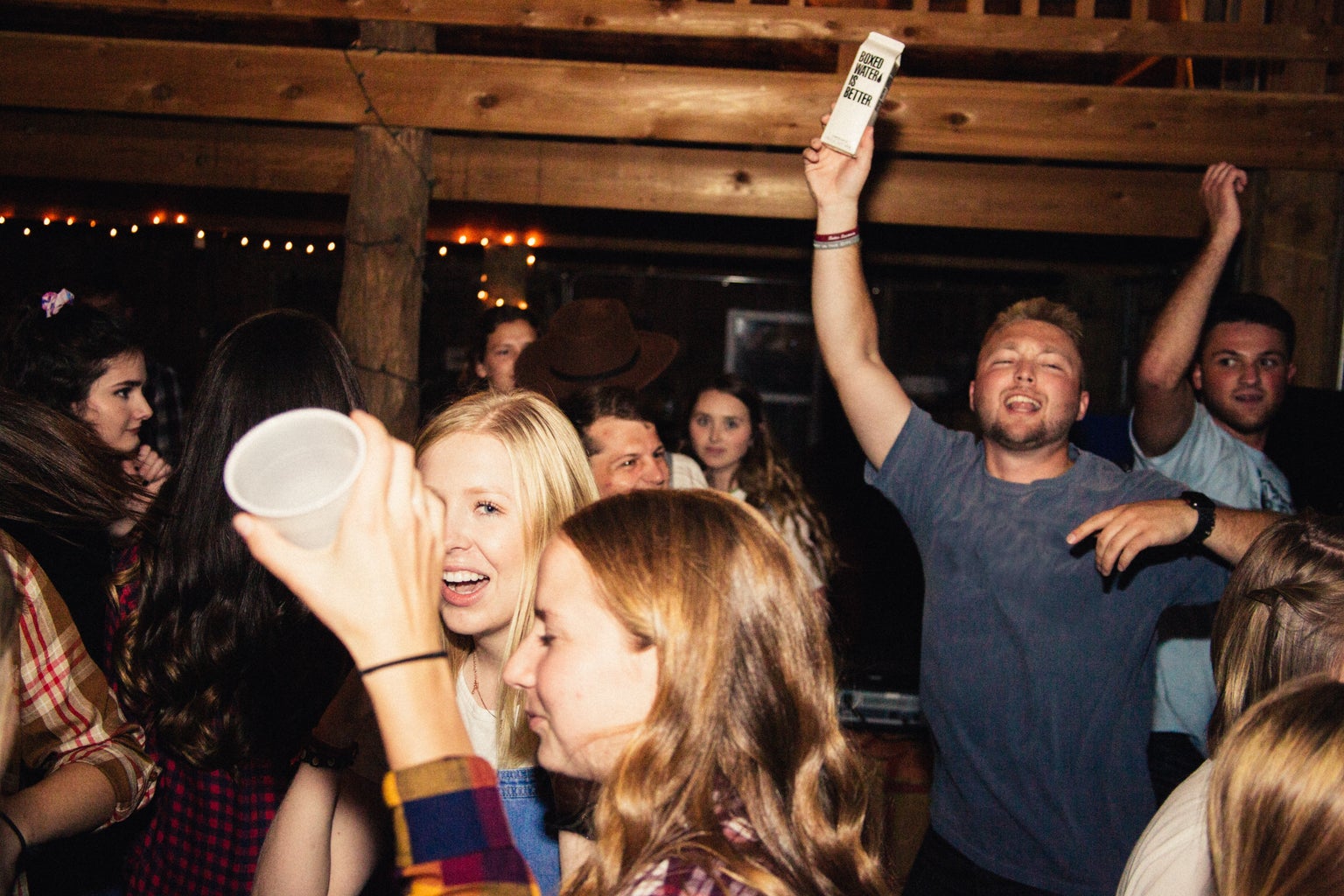For many, entering a new year can come with new goals. This can range from incorporating a healthier diet or keeping a planner as a way to manifest your future. For others, specifically those who are old enough to drink, cutting back on alcohol may be a significant and eye-opening goal for them. Whether it be for Dry January or spending the first six months of the year alcohol-free, balancing when you should and should not have alcohol can provide you with a healthier mindset.
But, what about when you’re planning to hit the city with friends? On many occasions, going out at night, especially on the weekends, can come with trips to bars and excessive drinking. Not being able to avoid these types of situations and giving in to social pressure can cause some complex feelings for those who are sober, including feelings of anxiety. Managing anxiety when you’re sober, and in a situation with alcohol, can be challenging, but incorporating strategies shouldn’t have to be seen as a hassle.
To gather more information about this topic, I spoke with Dr. David Tzall, Psy.D to discuss how a sober person should manage their anxiety when they’re headed to the bars whether it be for Dry January, or a sober life.
Going out sober can be met with many difficulties.
If you or someone you know has recently become sober, the journey to sobriety can be seen as both challenging and even frustrating. Even if you’re someone who didn’t struggle with addiction, it can still be tempting to come off the wagon and give in to drinking during Dry January. “Social events may present triggers or temptations that can lead to cravings for substances,” Tzall says. “Friends or acquaintances may not fully understand the challenges of maintaining sobriety — this lack of understanding can lead to unintentional pressure or insensitive comments.”
Coming to terms with the fact that you committed yourself to sobriety can come with a mixture of emotions, along with the many risks that you will have to face when you’re out in public. If you like to attend events or parties with friends, chances are that alcohol will be present. This type of conflict can easily affect your sobriety if you were to experience any triggers or feelings of anxiety. Seeing those around you consuming alcohol and using other substances can also make it difficult to handle yourself and add to the stress and anxiety.
however, there are ways to manage anxiety during your sobriety.
Even if you have thoughts of not accomplishing your sobriety journey, know that there are many ways to manage your anxiety and overall mental well-being. “Attending events or going out with friends can have an impact on a person’s sobriety, and it’s important to carefully navigate such situations,” Tzall says. “So, practice mindfulness techniques, such as deep breathing or meditation, to bring attention to the present moment and reduce anxious thoughts.”
When you start feeling anxious or overwhelmed at the bar, don’t be afraid to get some fresh air, or pull away from the group for a few minutes to take some deep breaths. And, if things become unmanageable, there’s nothing wrong with heading home to drink some water and decompress.
Making other healthy habits, such as going to therapy, will also help you understand your anxiety, especially when alcohol is involved. Once you take the time to understand why being sober at a bar makes you anxious, then you may discover the tools that can help you combat those negative feelings. “Consider therapy to explore the root causes of anxiety and develop coping mechanisms,” Tzall says.
Additionally, it may be worth it to shift your circle to include people who are supportive of your sobriety, or who are even sober themselves. “Isolation can contribute to anxiety, so staying connected with a supportive network is crucial,” Tzall says. “Be sure to maintain social connections with friends and family.” And, if you’re feeling pressured to drink by your friends during Dry January, then maybe they shouldn’t be the people in your circle after all.
Whether it’s your first time being sober, or it’s years in the making for you, don’t let societal pressure cause you to get off track of your sobriety — even if it’s just for a month. Have a safe Dry January!
If you or someone you know is seeking help for mental health concerns, visit the National Alliance on Mental Illness (NAMI) website, or call 1-800-950-NAMI(6264). For confidential treatment referrals, visit the Substance Abuse and Mental Health Services Administration (SAMHSA) website, or call the National Helpline at 1-800-662-HELP(4357). In an emergency, contact the National Suicide Prevention Lifeline at 1-800-273-TALK(8255) or call 911.
If you or someone you know is seeking help for substance use, call the SAMHSA National Helpline at 1-800-662-HELP(4357).




